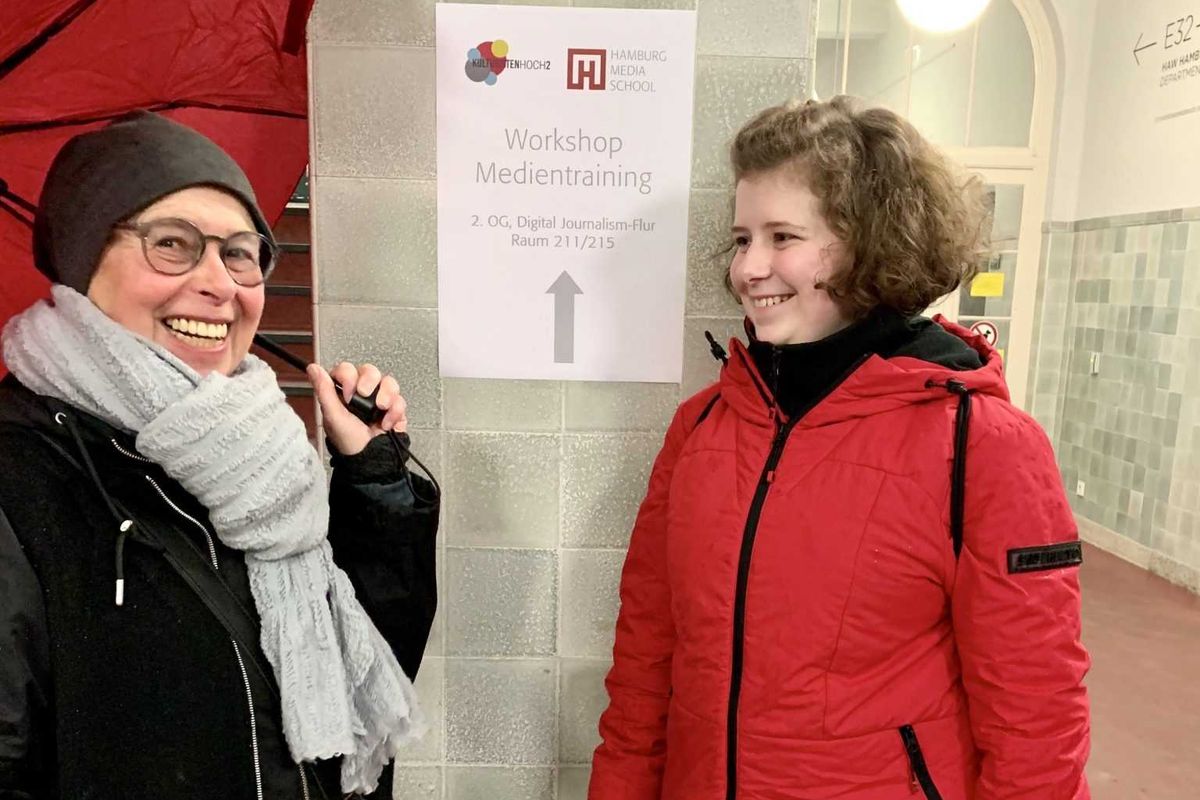When Carrie moved to Nashville to chase her dream of being a country music star, she ended up meeting the love of her life.
While performing at the Long Hollow Jamboree, Carrie met David, a guitar player. Two days later, they went on their first date, and they were married the very next year.
The newlyweds traveled the country playing music for six years and then decided to settle down. They had a baby girl. Their lives were happy, and everything seemed to be going according to plan.
Shortly after Carrie gave birth, her leg started throbbing in pain. She also felt weakness on her right side.
Carrie had felt fatigued for a while, but she chalked it up to being a new mom. After all, who isn’t tired with a new baby?
But then, while visiting her parents, she suddenly became so dizzy that she walked straight into a wall. A few days later, the right side of her face was paralyzed and she couldn’t move her right eye.
Carrie and her daughter, who is now 14. Image via MS Lifelines.
At the hospital, the doctors told Carrie that she had multiple sclerosis, or MS.
MS affects more than 2.3 million people worldwide, and there is no cure. It not only can be painful, but it can also cause a range of symptoms such as balance issues, vision problems, muscle stiffness or weakness, and mobility problems. That’s because MS causes the immune system to attack the brain and spinal cord's nerves — interrupting communication between the brain and body.
Carrie and her husband, David, were scared of the MS diagnosis.
"All I could think was that I had an 11-month-old baby that I couldn’t take care of and a future with my husband that I was missing," Carrie wrote when she shared her experience through My Story on MS Lifelines.
"I didn’t know if I could be a mother, wife or a musician anymore. It felt like MS was taking over our lives," she wrote.
"I would shed tears watching her walk down the hall and literally bounce off the walls because the vertigo made her too dizzy to walk a straight line," David wrote on My Story. "She had issues with her eyes and couldn’t see well enough to even change our baby's diaper."
Despite their fears, David and Carrie educated themselves about MS. Carrie started treatment and met other people living with MS. Eventually, she was able to return to living her life, and now, her and David's love is as strong as ever.
"No matter how my life may shift, what twists and turns it may take, there will always be one enduring truth at its core: Carrie is the love of my life," wrote David.
Today, they both share their stories as a way to help cope with the diagnosis and to help others who may be facing a similar situation.
Carrie and David. Image via MS Lifelines.
Talking about the experience of having MS or another chronic disease can be helpful when dealing with the stresses of an illness.
Storytelling may help people cope with the stresses and challenges of living with a chronic condition. It allows them to talk about what they are going through, identify any needs they have, and learn from others.
Storytelling can even help patients come to terms with their diagnosis because reading or listening to someone else's story can help them identify with the storyteller.
My Story, a new online platform offered through EMD Serono’s MS Lifelines, allows people with MS and their loved ones to come together and share their stories, experience, and strength so no one feels alone or overwhelmed by their diagnosis.
One study found that people who write a personal narrative can feel a sense of empowerment.
That is part of the reason why Dave, another individual with MS, decided to share his experience. He wanted to support others.
Dave Lyons, who was diagnosed with MS when he was 47. Image via MS Lifelines.
"Being diagnosed with MS can be overwhelming, but you can't let it define you, defeat you, or hold you down," said Dave. He is a fitness expert who was diagnosed with MS at age 47. Today, despite "bad" days where he has muscle weakness, numbness, and fatigue, he is finding a way to do what he loves: working out. He also wrote a book about fitness with adaptable exercises for people with MS.
Diane, who also has MS. Image via MS Lifelines.
Diane, who also has MS, understands how powerful hearing someone else’s story can be because hearing someone else’s story inspired her.
"At one of the MS events I attended, I met a lady with a pink cane decked out with rhinestones and glitter. She told me, 'If I have to use a cane, it’s going to be the prettiest one I can find,'" Diane said. "Her pink cane and her attitude have really stuck with me over the years."
With the love and support of their families and the MS community, Carrie, Dave, and Diane are still living life to the fullest. And by sharing their story with others, they are helping others do it too.



 A UPS truck with package deliveries.Image via Wikipedia
A UPS truck with package deliveries.Image via Wikipedia
 Cher was the biggest phenomenon on the planet for the better part of the '70s and '80s.Casblanca Records/
Cher was the biggest phenomenon on the planet for the better part of the '70s and '80s.Casblanca Records/

 A high school volunteer with her senior "tandem."
A high school volunteer with her senior "tandem."  KH2 makes leaving the house more accessible to senior citizens.
KH2 makes leaving the house more accessible to senior citizens.  Many "culture buddies" stay in contact after the program ends.
Many "culture buddies" stay in contact after the program ends.  KH2 provides students with excellent life skills and lasting connections.
KH2 provides students with excellent life skills and lasting connections. 
 Parents posing with their young kids on a basketball court. via
Parents posing with their young kids on a basketball court. via